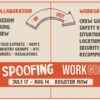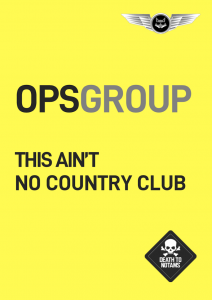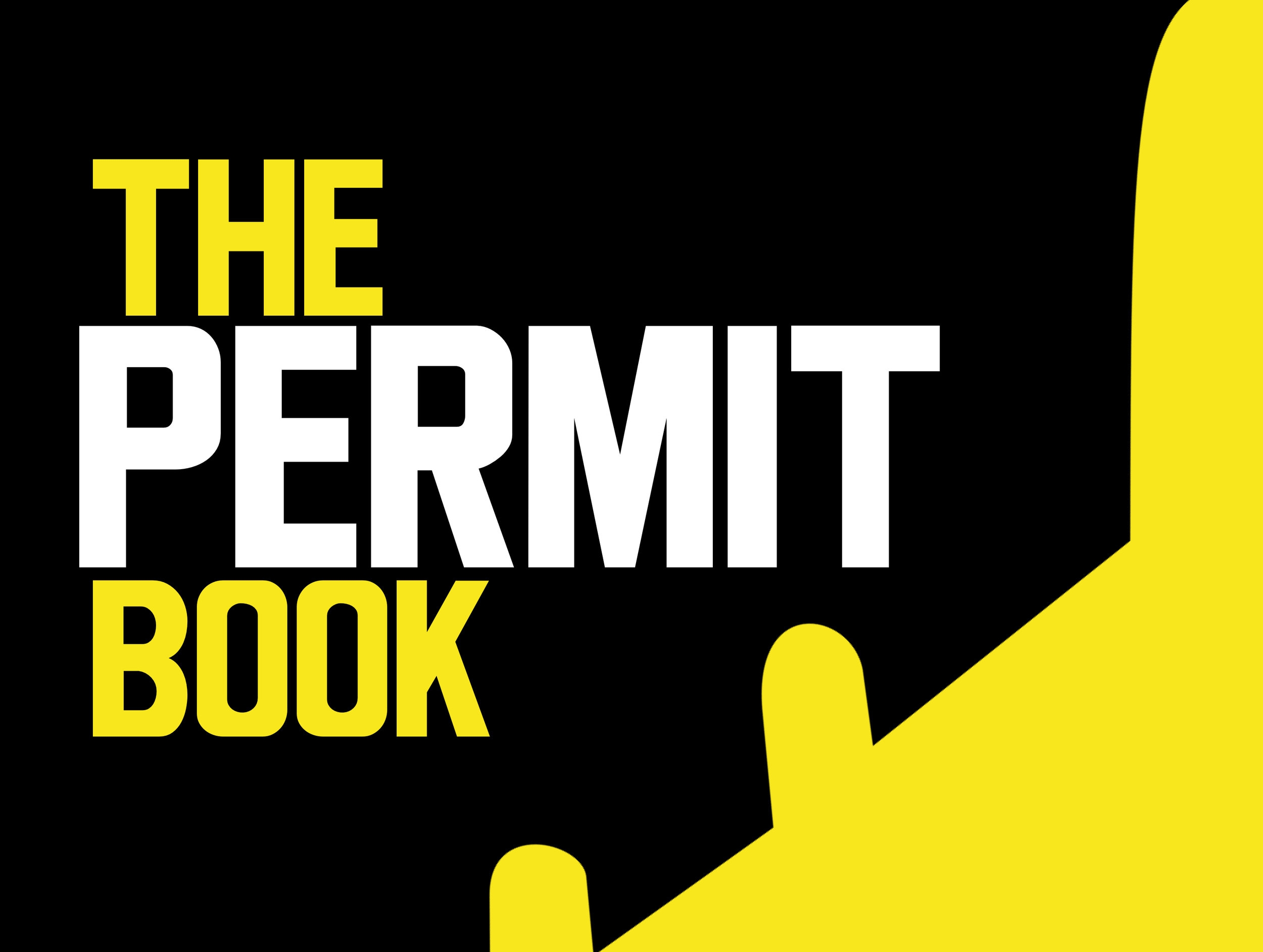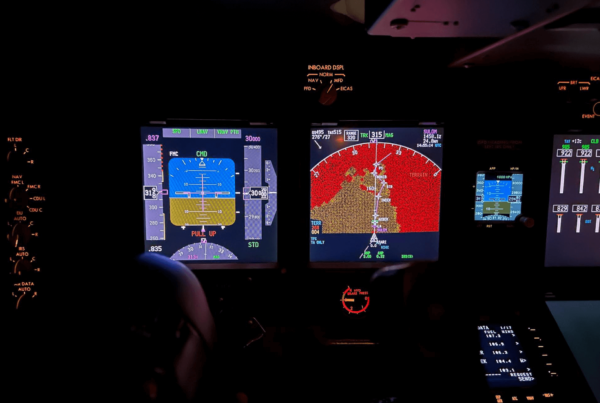The FAA has launched “Operation: Paperwork Misery” – a Notice of Proposed Rulemaking which will require operators to submit a whole bunch of additional pilot data to the agency via a new Pilot Records Database.
Here’s the plan, according to the FAA:
The FAA is proposing to require the use of an electronic Pilot Records Database (PRD) and implement statutory requirements. The PRD would be used to facilitate the sharing of pilot records among air carriers and other operators in an electronic data system managed by the FAA. Air carriers, specific operators holding out to the public, entities conducting public aircraft operations, air tour operators, fractional ownerships, and corporate flight departments would be required to enter relevant data on individuals employed as pilots into the PRD, and this would be available electronically to those entities. In addition, this proposal identifies all air carriers, fractional ownerships, and some other operators or entities that would be required to access the PRD and evaluate the available data for each pilot candidate prior to making a hiring decision.
Here’s a translation of how that may work in real life, from the NBAA:
The FAA’s PRD proposal would subject many business aviation operators to a substantial pilot-data reporting burden not previously applied to non-commercial operations. This proposed rule also amounts to a complete overhaul in the way commercial operators access information about a pilot before hiring and the way certificate holders will provide FAA historical and future records. It expands the types of operations required to give the FAA records documenting an individual’s compliance with FAA or employer required training, checking, testing, currency, proficiency, or other events related to pilot performance, including check pilot comments. Due to the extensive nature of the reporting requirements, the proposed rule has the potential to impose significant new burdens on Part 91 operators of all sizes.
“This is really regulatory overreach at its worst,” said Doug Carr, NBAA’s vice president for regulatory and international affairs. “We have a situation where our community will see no safety benefits as a result of compliance with this program, and the creation of a definition solely for the purpose of satisfying paperwork is not in the best interest of our community.”
Although the FAA’s new rule was issued on March 30, they have so far resisted calls from the industry to extend the comment period beyond June 29 – meaning many operators now don’t have enough time to trawl through the 200-page NPRM document to work out just how brutal the onerous new requirements are going to be, nor get much of a chance to provide any objections to the plan.
“It is exasperating that the FAA has given industry just 90 days to unpack a complicated plan amassed over nine years, and released as the aviation community fights for its survival during COVID-19,” said Koester. “It would not seem unreasonable to allow another 30 days for discussion, so we are pursuing other means to encourage the FAA to provide for this minimal, reasonable accommodation.
The NBAA are now encouraging affected operators to review the NPRM and submit comments providing as much detail as possible about the impact of these proposed changes to their operations. To do that, click here:
I DON'T ♥ THIS NPRM
Alternatively, you can submit your comments via the tool NBAA has launched to assist with this. Click here for that.
For more info on the specific impact of this proposed NPRM, here is what the NBAA have compiled, which we’re sharing here with their permission:
Concerns for all operators
Check pilot comments
The NPRM would require operators to include check pilot comments from training events in the pilot record database. As unflattering comments may cost pilots future job opportunities, this may leave check pilots or their employers open to liability and diminish the opportunity to improve safety by focusing additional training on check pilot comments.
Overly burdensome and inconsistent reporting requirements
Both the draft advisory circular and the NPRM contain language requiring operators to report a pilot’s aeronautical experience, flight time, and flight maneuvers performed to maintain privileges of their certificate. These burdensome reporting requirements could reasonably result in a need for certificate holders to log every flight hour, instrument approach, and landing in the pilot record database.
Language within the NPRM also contains many contradictory statements leaving operators unclear on the intent of the proposal and the actions required by the rule. Most notably, 111.220(b)(3) states no person may report records documenting aeronautical experience, yet 111.220(a)(2) requires air carriers to report records related to currency and proficiency.
Concerns for Part 91 operators
Definition of Corporate Flight Department
For the first time, this NPRM would codify a definition of a “corporate flight department”. The definition crafted solely for compliance with record keeping requirements does nothing to enhance other elements of our industry and excludes a substantial portion of business aviation that considers itself part of the community.
New recordkeeping and reporting requirements
This NPRM results from Public Law 111-216 (Airline Safety and Federal Aviation Administration Extension Act of 2010), which indicates operators must report training and employment records already maintained by operators. The proposed rule would require Part 91 operators to undertake new record keeping and reporting burdens. Some operators already use sophisticated software systems for managing and tracking pilot training, checking, testing, currency, and proficiency. However, many operators use simple tracking systems that will require manually reporting these records to the FAA.
Concerns for Part 125 and Part 135 operators
The FAA will charge operators a $110 fee any time they pull records for a pilot candidate.
Part 125
The NPRM requires Part 125 operators to report historical records dating back to August 1, 2010. Operators will be required to upload employment, training, checking, testing, currency, proficiency, and disciplinary records for every pilot under their employment over the last ten years. Operators will be able to upload records in XML or manually.
Part 135
The NPRM requires Part 135 and 121 operators to report historical records dating back to August 1, 2005. Operators will be required to upload employment, training, checking, testing, currency, proficiency, and disciplinary records for every pilot under their employment over the last 15 years. Operators will be able to upload records in XML or manually.
NBAA’s Perspectives
While the NPRM contains some potential efficiency improvements for the Part 125 and Part 135 communities, we believe that a substantial number of these proposals would burden the part 91 community far beyond the intent of Congress. For certificated operators currently required to comply with the Pilot Records Improvement Act (PRIA), the NPRM may streamline record reporting and requesting processes, expedite response times, and allow for more informed hiring decisions.
The NPRM would also require reporting more information than under PRIA by more segments of the aviation community, including corporate flight departments and 91.147 air tour operators. The proposal would require these constituencies to report not just training and checking events, but also any event that leads to proficiency or maintains currency, such as day or night landings, flight hours, and instrument approaches. This process will be burdensome and provide little information that enhances hiring decision making abilities.
NBAA encourages affected members to review the NPRM and submit comments to the public docket providing as much detail as possible about the impact of these proposed changes to their operations.
Read the NPRM on the regulations.gov website.
Comments should be submitted no later than 11:59 p.m. EDT on June 29, 2020.
More on the topic:
- More: US FAA: Who wants to land on the runway?
- More: US FAA: Swift Move to Improve Flight Tracking Privacy
- More: US Federal Govt Shutdown Risk – Why it Matters to Aviation
- More: Updated FAA Oceanic Guides
- More: The FAA Northeast Corridor Atlantic Coast Routes Project
More reading:
- Latest: Teterboro: RIP the RUUDY SIX
- Latest: 400% increase in GPS Spoofing; Workgroup established
- Latest: GPS Spoofing WorkGroup 2024
- Safe Airspace: Risk Database
- Weekly Ops Bulletin: Subscribe
- Membership plans: Why join OPSGROUP?










 Get the famous weekly
Get the famous weekly 





